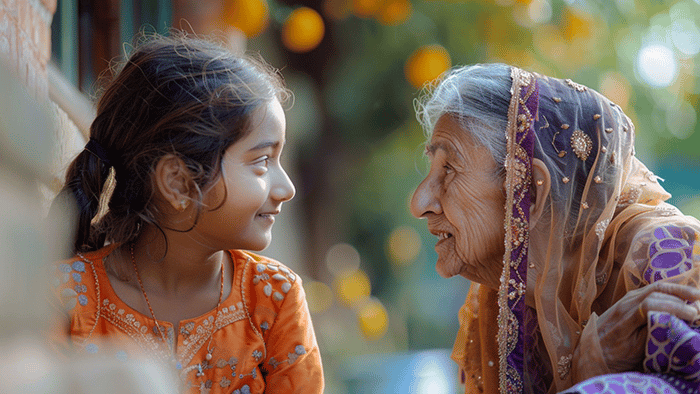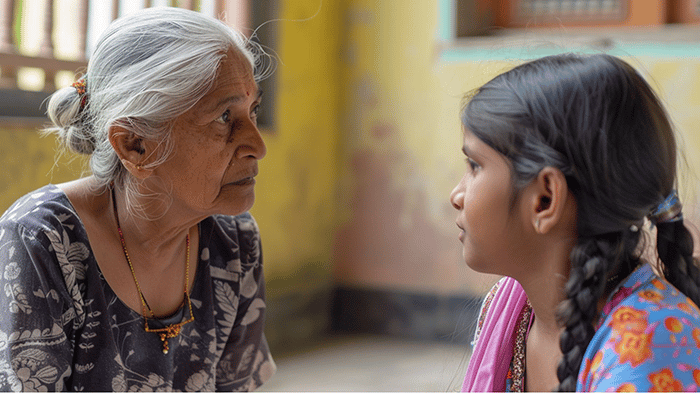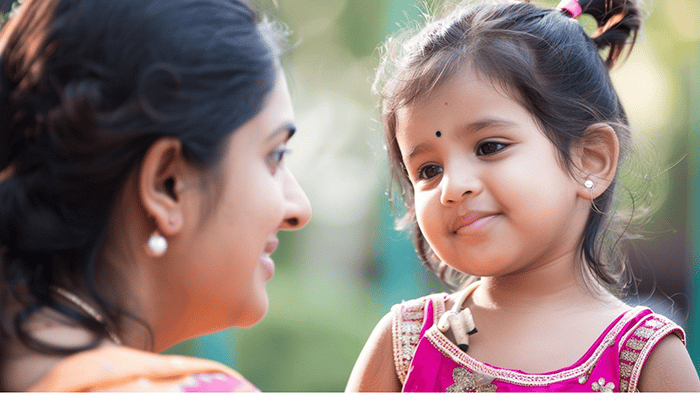- 1. Traveling
- 2. Adapting
- 3. Learning new cultures
- 4. Stronger vocabulary And Efficient conversation
As a parent, are you wondering how smart your kid is or how strong your kid's grasping ability is? It is surely not uncommon to think that. However, what most parents miss out on is the child's ability to learn and grasp a language.
Talking is also one of the major aspects that showcases a child's IQ and ability to communicate. This ability can be an essential parameter to measure how quick a child's grasping ability is in younger children. Learning multiple languages can also indicate various logical factors in older kids.
Parents should surely consider the ability of kids to talk and learn language as a part of IQ and smartness. Keep on reading more about how to develop multilingualism in children.
What Is Multilingualism?

The concept of multilingualism is similar to its name. Multilingualism, by definition, means knowing two or more linguistic theories or languages. India is a diverse country with many languages at state and regional levels.
Most children in India are multilingual because of their mother and national tongue. The national tongue implies the national language of India, which is Hindi. At the same time, the mother tongue indicates the languages spoken by parents and close family members in a household relating to a particular culture or part of India.
Children who have grown up in two cultures know more than three or four languages, being multilingual at a very young age. Most Indian children, after age five, are also fluent in the global language English.
Nowadays, the Indian education system also implements different kinds of global languages, such as Sanskrit, French and German, into children's curriculum. These languages are often included in the 8th standard to enhance a child's multilingual aspects.
Top Reasons Multilingualism Is Beneficial To Kids
There are multiple benefits of multilingualism for kids:
1. Traveling
Children familiar with regional places will have no problem navigating and guiding others if they travel to that specific geographical area. For example, if a child living in Jharkhand knows how to speak Bengali, the state language of West Bengal. Traveling to West Bengal and following different instructions in their mother tongue will be easy. There will be no language barrier while traveling.
2. Adapting

Kids fluent in multi-linguistics are very good at adapting to various cultures and livelihoods of specific places. Kids who grow up in a multilingual home are fast learners. It becomes easy for them to adapt to any place by learning the language first.
3. Learning new cultures

Multilingual kids are also learning and getting exposure to new cultures related to that language. Languages are the mirror of culture and the Geographic area where the language is being spoken. Kids who are multilingual or always thinking out of the box and have an open mindset. It is truly said that without language, there is no culture, as culture's main identity is language.
4. Stronger vocabulary And Efficient conversation
Multilingual kids also have stronger vocabulary and efficient conversation skills, making them fluent and strong communicators. Multilingual kids often know how to express themselves better with the help of words.
How To Develop Multilingualism In Children?
Multilingualism offers numerous cognitive, social, and cultural benefits for children. Here are some effective methods to help children become multilingual:
- Start Early: As a parent, you should introduce multiple languages as early as possible, ideally from birth. Young children have a natural ability to acquire languages effortlessly.
- Consistent Exposure: Ensure consistent exposure to each language. This can be through conversations, storytelling, songs, and daily routines.
- Resources: Surround children with a variety of language resources, such as books, videos, and games in different languages. You can also label objects around the house in multiple languages to reinforce vocabulary.
- One Person One Language: Assign one language to each parent or caregiver. For example, one parent speaks only English, while the other speaks only Marathi. This method helps children associate each language with a specific person.
- Enroll in Language Classes: Consider enrolling children in language classes or bilingual preschools where they can learn and practice with other children in a fun way.
Children Unable To Grasp Multiple Languages Is An Illness?
Difficulty in learning multiple languages is not considered an illness. Children’s ability to acquire languages varies due to numerous factors, including individual differences, the amount of exposure, and the methods used. Other problems and disorders hamper the child's multilingual learning, such as speech impairment, dyslexia, autism, and more. Parents should consider every other aspect of the difficulty and learning, too.
Conclusion
Parents must keep children's grasping and learning abilities in check from an early age. One of the best ways to do so is to help kids learn new languages as they grow up. Learning new languages will surely help kids keep their minds active and fresh. It will help kids with their IQ. It will also be useful to them when they grow as adults using their multilingual skills for various purposes.
Smriti is a content writer who creates clear, practical, and informative content backed by science and relevant data. With a strong understanding of structured writing, she breaks down complex topics into simple, actionable insights. Her work is focused on helping readers prepare, learn, and grow with confidence and clarity.
The views expressed are that of the expert alone.
The information provided in this content is for informational purposes only and should not be considered a substitute for professional medical advice, diagnosis, or treatment. Always seek the advice of your physician or another qualified healthcare provider before making any significant changes to your diet, exercise, or medication routines.
References
https://bhu.ac.in/research_pub/jsr/Volumes/JSR_65_09_2021/9.pdf
















